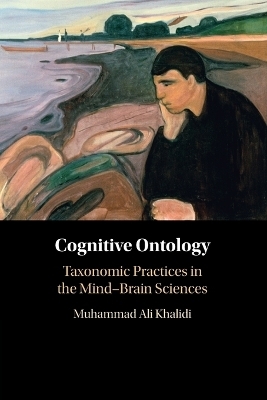
Cognitive Ontology
Taxonomic Practices in the Mind-Brain Sciences
Seiten
2024
Cambridge University Press (Verlag)
978-1-009-22362-1 (ISBN)
Cambridge University Press (Verlag)
978-1-009-22362-1 (ISBN)
Cognitive scientists aim to understand the ways in which psychological functions relate to brain structures. This book examines taxonomic practices in cognitive science and proposes a new understanding of the nature of cognitive categories, and a novel account of the ways in which cognitive constructs relate to neural constructs.
The search for the 'furniture of the mind' has acquired added impetus with the rise of new technologies to study the brain and identify its main structures and processes. Philosophers and scientists are increasingly concerned to understand the ways in which psychological functions relate to brain structures. Meanwhile, the taxonomic practices of cognitive scientists are coming under increased scrutiny, as researchers ask which of them identify the real kinds of cognition and which are mere vestiges of folk psychology. Muhammad Ali Khalidi present a naturalistic account of 'real kinds' to validate some central taxonomic categories in the cognitive domain, including concepts, episodic memory, innateness, domain specificity, and cognitive bias. He argues that cognitive kinds are often individuated relationally, with reference to the environment and etiology of the thinking subject, whereas neural kinds tend to be individuated intrinsically, resulting in crosscutting relationships among cognitive and neural categories.
The search for the 'furniture of the mind' has acquired added impetus with the rise of new technologies to study the brain and identify its main structures and processes. Philosophers and scientists are increasingly concerned to understand the ways in which psychological functions relate to brain structures. Meanwhile, the taxonomic practices of cognitive scientists are coming under increased scrutiny, as researchers ask which of them identify the real kinds of cognition and which are mere vestiges of folk psychology. Muhammad Ali Khalidi present a naturalistic account of 'real kinds' to validate some central taxonomic categories in the cognitive domain, including concepts, episodic memory, innateness, domain specificity, and cognitive bias. He argues that cognitive kinds are often individuated relationally, with reference to the environment and etiology of the thinking subject, whereas neural kinds tend to be individuated intrinsically, resulting in crosscutting relationships among cognitive and neural categories.
Muhammad Ali Khalidi is Presidential Professor of Philosophy at the Graduate Center, City University of New York. His book, Natural Categories and Human Kinds, was published by Cambridge in 2013.
1. Cognitive Kinds; 2. Concepts; 3. Innateness; 4. Domain Specificity; 5. Episodic Memory; 6. Language-Thought Processes; 7. Cognitive Heuristics and Biases (co-written with Joshua Mugg); 8. Body Dysmorphic Disorder (co-written with Amy MacKinnon); 9. Epilogue.
| Erscheinungsdatum | 31.08.2024 |
|---|---|
| Zusatzinfo | Worked examples or Exercises |
| Verlagsort | Cambridge |
| Sprache | englisch |
| Maße | 152 x 229 mm |
| Gewicht | 431 g |
| Themenwelt | Geisteswissenschaften ► Philosophie |
| Geisteswissenschaften ► Psychologie ► Allgemeine Psychologie | |
| Geisteswissenschaften ► Psychologie ► Verhaltenstherapie | |
| ISBN-10 | 1-009-22362-3 / 1009223623 |
| ISBN-13 | 978-1-009-22362-1 / 9781009223621 |
| Zustand | Neuware |
| Informationen gemäß Produktsicherheitsverordnung (GPSR) | |
| Haben Sie eine Frage zum Produkt? |
Mehr entdecken
aus dem Bereich
aus dem Bereich
Techniken der Verhaltenstherapie
Buch (2024)
Julius Beltz GmbH & Co. KG (Verlag)
CHF 48,95


